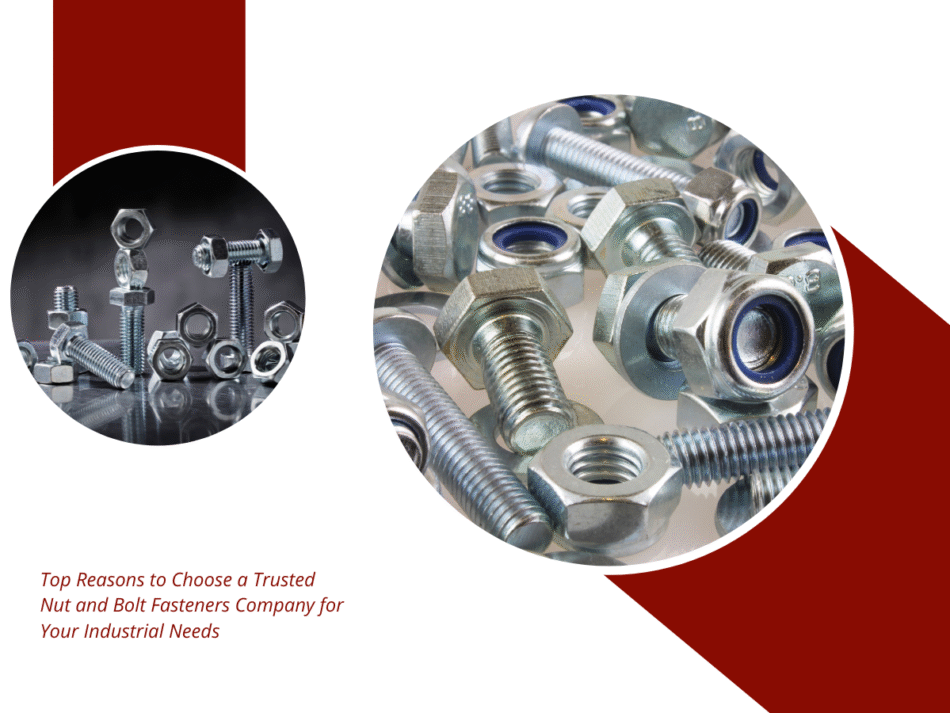Fasteners are essential components used to mechanically join or affix two or more objects together. Although small in size, they play a crucial role in the safety, durability, and functionality of structures, machinery, and everyday products. From skyscrapers and airplanes to furniture and household appliances, fasteners are everywhere.
What Are Fasteners?
Fasteners are hardware devices designed to create non-permanent joints—meaning the components can be disassembled without causing damage. Unlike welding or adhesives, fasteners allow flexibility, repairability, and ease of installation.
Common materials include:
- Steel (plain, stainless, alloy)
- Brass
- Aluminum
- Titanium (often used in aerospace)
- Plastic/nylon
They may also undergo surface treatments such as galvanizing, anodizing, plating, or coating to enhance corrosion resistance.
Related Topics
- netraclos.mn.co
- prophesy-it.mn.co
- reconnaissance.mn.co
- antscontrolblogs.mn.co
- eazydoe-package.mn.co
- paragonthemes.com/
- reddit.com
- list.ly
- behance.net
- quora.com
Types of Fasteners
1. Screws
Screws create strong holding power due to their helical threads.
- Wood screws
- Machine screws
- Self-tapping screws
- Sheet metal screws
- Drywall screws
Applications: furniture, electronics, machinery, building materials.
2. Bolts and Nuts
Bolts are used with nuts and often washers to create secure, high-strength joints.
- Hex bolts
- Carriage bolts
- Anchor bolts
- Flange bolts
Applications: structural steelwork, automotive assemblies, heavy equipment.
3. Rivets
Rivets create permanent mechanical joints.
- Solid rivets
- Blind (pop) rivets
- Semi-tubular rivets
Applications: aircraft, shipbuilding, metal fabrication.
4. Washers
Washers distribute load, prevent loosening, and protect surfaces.
- Flat washers
- Spring washers
- Lock washers
Applications: used in nearly every bolted assembly.
5. Anchors
Anchors are used to fasten objects into concrete, brick, or drywall.
- Expansion anchors
- Toggle bolts
- Chemical anchors
Applications: construction, home installations, heavy fixtures.
6. Clips, Pins & Other Specialty Fasteners
Includes:
- Cotter pins
- Retaining rings
- Snap fasteners
- Cable ties
Applications: automotive, electrical, clothing, packaging.
Choosing the Right Fastener
Selecting the proper fastener involves several key considerations:
1. Material Compatibility
Avoid galvanic corrosion by matching compatible metals (e.g., stainless steel fastener with stainless steel part).
2. Mechanical Requirements
Account for:
- Tensile strength
- Shear strength
- Fatigue resistance
- Vibration conditions
3. Environmental Conditions
Consider exposure to:
- Weather
- Chemicals
- Saltwater
- High temperatures
4. Installation & Maintenance
Factors include tool availability, required torque, and ease of removal.
Importance of Fasteners in Modern Industries
Construction
Fasteners ensure structural integrity in buildings, bridges, and infrastructure.
Automotive & Aerospace
High-performance fasteners withstand extreme vibration, heat, and stress.
Electronics & Appliances
Miniature fasteners enable compact and reliable device assembly.
Manufacturing & Industrial Machinery
Durable joinery ensures longevity and safety of moving equipment.
Trends and Innovations in Fasteners
- Lightweight materials (composites, titanium) for fuel efficiency
- Smart fasteners with embedded sensors for load or vibration monitoring
- High-corrosion-resistance coatings for marine and chemical environments
- Automation-friendly designs supporting robotic assembly
Conclusion
Fasteners may appear simple, but they are foundational to nearly every engineered product. Their proper selection, installation, and maintenance directly impact safety, performance, and cost-efficiency. As industries evolve, innovations in fastener materials and design continue to support stronger, lighter, and more intelligent systems.
 WhatsApp Us Now
WhatsApp Us Now







